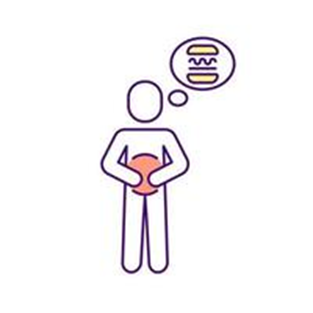“There is a lot of money to be made with the lengths people are prepared to go to in order to lose some width”
– Unknown
Summary:
Concept:
Eating in moderation is a wise practice to maintain youthfulness and vitality for a longer time. By indulging in a balanced and portion-controlled diet, one can reap numerous benefits for their overall well-being. Moderate eating helps to regulate body weight, preventing the onset of obesity-related health issues that can accelerate the aging process. It allows the body to efficiently absorb essential nutrients, promoting healthy skin, hair, and nails. Moreover, by avoiding excessive intake of processed foods, added sugars, and unhealthy fats, one can reduce the risk of chronic diseases, such as diabetes, heart disease, and certain cancers, which can prematurely age the body. In essence, moderation in eating fosters a healthier and more youthful existence.
Always check with your medical practitioner on whatever the correct form of weight control is right for you.
Detail:
Benefits:
The pain of discipline allows us to do what we want to do for longer…..as long as it is in moderation.
The first thing to avoid is skipping meals, as this can lead to overeating and weight gain – better to change what you eat. Avoid is being overly restrictive, as this can lead to binge eating and weight gain.
Recent studies have shown that losing weight has as much to do with what calories we consume, the tine we consume them as much as the actual calories themselves.
Skill:
Next Steps:
- Step One: Eat slowly, with smaller cutlery. Use mindfulness to help you better recognize when you are full.
- Step Two: Increase physical activity, with a focus on resistance training and high-intensity interval training.
- Step Three: Avoid sugary drinks and choose water instead, as sugary drinks are high in calories and do not provide any nutritional value.
- Step Four: Avoid is relying on fad diets, as these often lack important nutrients and can be difficult to sustain long-term.
- Step Five: Use the Stress Toolbox to manage stress. Chronic stress can lead to overeating and weight gain.
- Step Six: Focus on consuming more protein and fibre-rich foods, as they keep you feeling full for longer.
- Step Seven: Avoid is eating late at night, as consuming a large amount of calories before bedtime can cause weight gain.
- Step Eight: Glucomannan is a dietary fibre usually made from the root of the konjac plant. It’s historically been used as food and medicine in Asian cultures. Glucomannan might work in the stomach and intestines by absorbing water to form a bulky fibre which treats constipation. It might also slow the absorption of sugar and cholesterol in the gut, helping to control sugar levels in people with diabetes and reduce cholesterol levels.
- Step Nine: Green Tea with Cayenne Pepper takes the edge off any appetitie.
- Step Ten: The goal is to go to bed slightly hungry, let sleep help the process. Get enough quality sleep, as studies show poor sleep has been linked to weight gain of approx. 300 additional calories a day. The final thing to avoid is being too hard on yourself, as negative self-talk can lead to stress and overeating.
Action:
Do/Consume
Difficulty:
Moderate
Speed:
Moderate to Slow
Other Compatible Coping Skills
How many stars would you award this coping skill?

